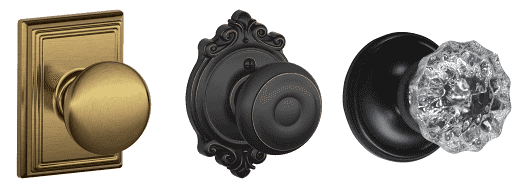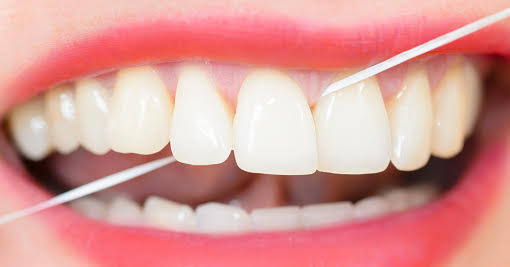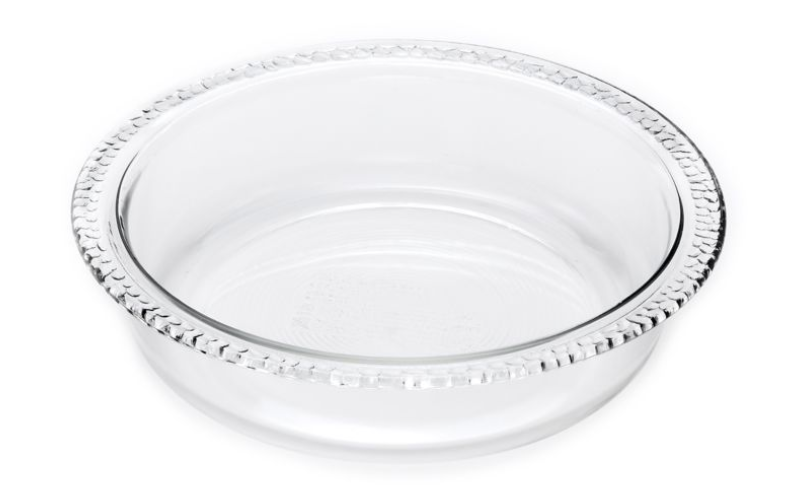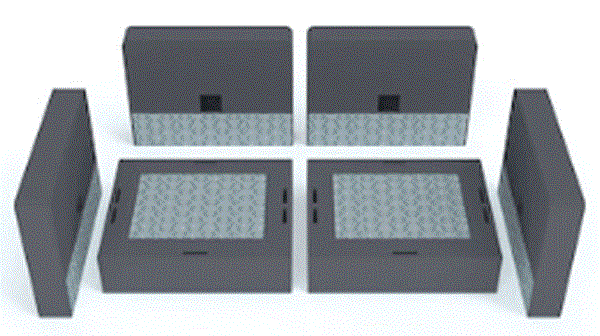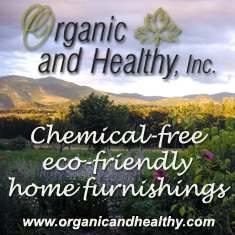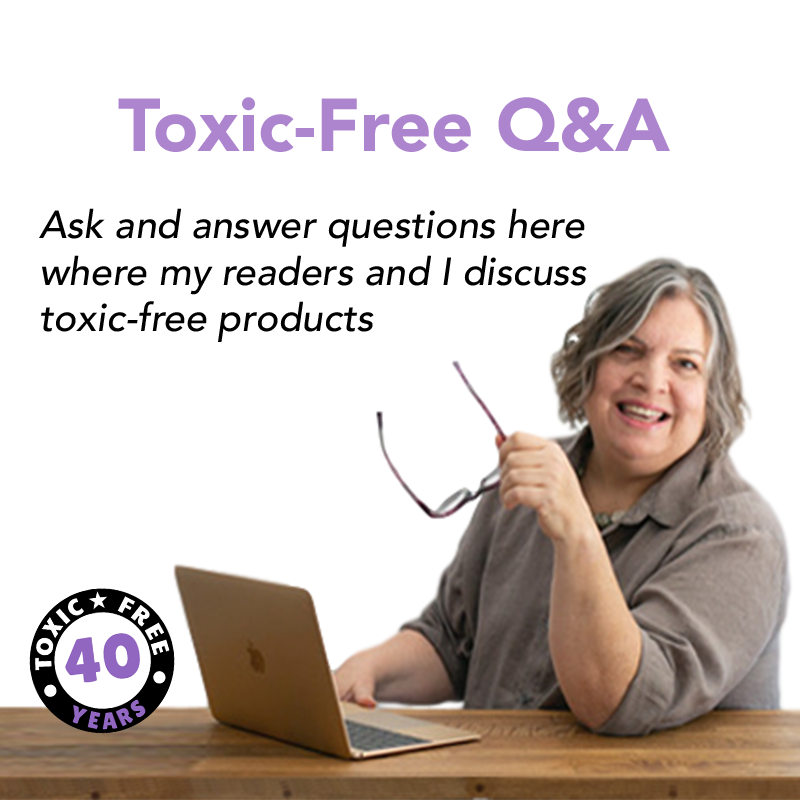
Submitted questions will be posted with my response by the following Tuesday or before.
Submitted comments will be moderated and approved within 24 hours.
Least Toxic Spray Foam Insulation?
Question from Lora
Hi Debra,
What would be the least toxic whole house spray foams to use for insulation. the type you would spray in your exterior walls (and interior?). the type that expand when you spray in walls. my husband just wants to get something from home depot or lowes and i’m really stressing about this and possible off-gassing for years as i have MCS.
What should I use?
Debra’s Answer
Here are some answers to your question that I found online, written by green building experts.
BUILD DIRECT: Is There an Eco-Friendly Spray Foam Insulation?
This post pretty much answers the question with a well-explained NO. However another expert has a different viewpoint
GREEN BUILDING ADVISOR: Are There any “Green” Non-VOC Spray Foams?
This expert asserts that the finished, cured spray foam is NOT harmful to health but the installation of the foam is hazardous. And she admits that some foam is incorrectly installed and therein lies the problem.
MY CHEMICAL-FREE HOUSE: Zero VOC Insulation
Here you will find all the Zero VOC options, both blow-in and batt. Great review with the pros and cons of fifteen options. I think you’ll find your answer here.
That said, readers, if you have any suggestions from your own experience, please post them here.
Lead-free door knobs
Question from Terry
Hi Debra,
Do lead free door knobs exist?
Debra’s Answer
This is a very difficult question.
To answer this question thoroughly you would need to know:
* the types of doorknobs available
* the materials used to make each type
And then you would need to review each one and choose those that are not made with lead.
Alternatively, you could test each doorknob for lead using an XRF machine.
But neither of these methods are practical.
There are thousands of available doorknobs, and materials disclosure is not required by law.
One man tested all his doorknobs for lead using XRF. After finding out they all tested high, it turned our they were plated with nickel. “The XRF analyzer was seeing through this layer to the lead beneath. Likely this lead would never transfer to our hands, unless the nickel wears through.” http://blog.mikemccandless.com/2010/06/finding-lead-in-your-house.html
And even if the lead DID get on your hands lead does not go through skin into your body.
BUT if you were to touch a doorknob with lead and then you picked up a sandwich, the lead would get on the sandwich. If you then ate the sandwich, the lead on the sandwich would get into your body and you would have a lead exposure.
So that would be the exposure. You would touch something that contains lead, like a doorknob, then eat some fried chicken and lick your fingers and then you would be exposed to lead.
There’s a great website called “How Products are Made”, which gives the history, materials and manufacturing information on a wide variety of products we use every day. I looked up Doorknob. In the past, doorknobs were made from wood, glass, china, or bronze. Today more doorknobs are made of metal. The most common type of metal is brass. But we don’t touch the brass—doorknobs are coated with various inert metals and electroplated with semiprecious materials.
I could find only one article that expressed any concern about Lead in doorknobs:
https://windowanddoor.com/article/marchapril-2010/is-lead-hardware-a-concern
And only one website that sells “Lead-free” door knobs.
https://www.houseofantiquehardware.com/lead-free-crystal-knobs-pulls. Even though one blogger stated, “lead-free door knobs are readily available,” I couldn’t find them anywhere else but here.
In the forty years I’ve been researching things toxic and toxic-free this is the first time it has come up as an issue. I always just buy whatever doorknobs I like. It’s not the greatest exposure to lead.
Wash your hands before you eat (as you should do anyway because of germs) and any lead your hands may have picked up along the way will be gone.
New Study Finds Toxic Nonstick Chemicals in Oral B Dental Floss
A new study from the Silent Spring Institute and Public Health Institute found higher levels of PFHxS (perfluorohexanesulfonic acid), a PFAS, in women who flossed with Oral-B Glide compared to those who didn’t. Other brands of floss may also use these chemicals (which may or may not appear on the label).
“This is the first study to show that using dental floss containing PFAS is associated with a higher body burden of these toxic chemicals,” lead author Katie Boronow, a scientist at Silent Spring.
My interest in this study is it shows that even small exposures to toxic chemicals not only can but DO end up in bodies in measurable amounts.
Last year the State of Washington and the City of San Francisco banned use of PFAs in single use food service ware.
USA TODAY: Oral-B Glide Floss Tied to Potentially Toxic PFAS chemicals, Study Suggests
HEALTHLINE: Is Oral-B Dental Floss Really Toxic? What You Need to Know
Toxic-Free Dental Floss
First I just want to say that dental floss is not one of your greatest exposures to toxic chemicals. It’s not a product I’ve focused on in the past.
Note in the comments below one reader wrote it saying she had contacted P+G, who sent her a document that shows PFAs are NOT an ingredient in their Glide dental floss. The study did not even look at the ingredients in the product. It was rather a study that showed that select group of people who had PFAs in their body used Glide dental floss. So we can’t say that there are PFAs in Glide dental floss.
But if you are concerned about this possible exposure, let me give you my thoughts about products that are unlikely to contain PFAs or any other industrial chemicals as ingredients.
Rather than simply give you a list, I want to show you my process of how I came up with this list.
First I went to my new Zero Toxics Products + Materials Matrix. Even though I haven’t written the ratings specifically for dental floss yet, these ratings do show how I think about products and how I quickly evaluate products that are likely to be toxic-free.
Here are quick notes of what the ratings would be for dental floss:
ZERO TOXICS “A+” RATING
Dental floss made from certified organic product where all materials and the manufacturing facility and process are certified organic.
ZERO TOXICS “A” RATING
Dental floss made from certified organic or sustainable materials that come from renewable plants or animals, or abundant minerals.
ZERO TOXICS “B” RATING
Dental floss made from renewable plants or animals, or abundant minerals. Toxic chemicals may be used to some degree in production or processing. May contain residues of toxic contaminants such as pesticides or pollutants.
ZERO TOXICS “C” RATING
Dental floss made from petroleum-based ingredients. May not be suitable for people with Multiple Chemical Sensitivities or other high-risk groups.
ZERO TOXICS “D” RATING
Known to cause illness or injury with repeated exposure over time—products or materials made with one or more chemicals of concern.
ZERO TOXICS “F” RATING
Known to cause immediate harm and may even lead to death—made with one or more chemicals of concern
Here are some dental flosses I looked at, with their Zero Toxics Matrix ratings and materials given in their descriptions:
B – Eco-Dent Gentlefloss Premium Dental Floss, Mint
100% vegan waxed, no information on material used for floss itself
B – Dental Lace | Silk Dental Floss with Natural Mint Flavoring
This one is made from 100% silk and Candelilla wax.
B – Desert Essence Tea Tree Oil Floss
Coated with natural beeswax with added antiseptic tea tree oil, material of floss unknown
B – RADIUS – NATURAL SILK FLOSS
Made from 100% silk and Candelilla wax.
B – COCOFLOSS Coconut-oil infused luxury dental floss
This one is made from microfibers infused with coconut oil. Says right in the description “no PFA.”
B – Dr. Ginger’s All Natural Coconut Oil & White Charcoal Dental Floss
Made with coconut oil, xylitol and white charcoal, no information given on fiber of floss.
The above list all happened to end up with my Zero Toxics “B” rating.
It seems that many mass market brand dental flosses may contain PFAs to make them glide between teeth more easily. Any brand that does contain PFAs would fall into my Zero Toxics “D” rating—not an immediate poisoning but could build up to be dangerous over time with regular use.
This isn’t a complete review or writeup on all dental floss, just something quick to get started with if you are considering changing your brand of dental floss.
Round Cake Pan That Is Non Toxic
Question from Naomi
Hi Debra,
I have been looking for a round glass cake pan like the ones Pyrex used to make but they do not seem to be available anymore from any company. I found a ceramic one on Amazon. I tried to search this company on your website but did not find any info. Can you let me know what you think of it ? If you have any other suggestions, please let me know
https://www.greenlife-cookware.com/about
For us, healthy cookware isn’t an option, it’s a necessity. That’s why we only use Thermolon™, the first 100% natural ceramic non-stick coating.
Traditional non-stick coatings are manufactured with chemicals that are harmful to you and the environment. When overheated, these coatings release toxic fumes. Thermolon™ is high heat resistant, which means it won’t chip or peel when overheated the way traditional coatings do.
At GreenLife™, we value the health of you and your family. That’s why we made it our mission TO CREATE PRODUCTS 100% FREE OF PFAS, PFOA, LEAD and CADMIUM.
Thanks so much.
Debra’s Answer
This looks like it might be close to what you are looking for. It’s 3 quarts, which I think is too big, but you don’t need to fill it.
https://www.bedbathandbeyond.com/store/product/3-quart-borosilicate-glass-baking-dish-in-clear/1044168773?skuId=44168773&&enginename=google&mcid=PS_googlepla_nonbrand_bakeware_online&product_id=44168773&adtype=pla&product_channel=online&adpos=1o4&creative=224484706032&device=c&matchtype=&network=g&mrkgadid=558423881&mrkgcl=609&rkg_id=0&gclid=Cj0KCQiA-JXiBRCpARIsAGqF8wWzgYfkOGjI8ld9RhzDRB7CGfRnqJkeSQMKVL4EBb24CgCXa52ChPgaAlZzEALw_wcB&gclsrc=aw.ds
Try searching on “glass baking dish” rather than “cake pan” and you’ll find quite a few.
I took a look at Thermolon back in 2008, and found that the ingredeints are a trade secret, but it “is based on silica, which of course originates from sand.” Other raw materials in the coating are oxygen and carbon. During the process of making Thermolon, the carbon is eliminated. So it’s basically some type of glass. I had a pdf they sent me with a statement about the composition of the finish, but it has gotten lost over the years. I’ll research it again and see if I can find out more.
Thermalon may be fine. I just don’t know because the materials are a trade secret/
Toxic Airstream Trailers
For years I’ve been hearing that Airstream Trailers are less toxic that other brands of trailers.
That may have been true at some time in the past, but it’s not true today.
Over the weekend Larry and I went to an Airstream showroom and the toxic odor in the new models was terrible.
Airstream trailers have a classic aluminum frame with a very beautiful design, but the materials used in today’s Airstream interiors are the same toxic materials used in other trailers.
So if you want an Airstream, look for an old one and renovate the interior with nontoxic materials. Don’t get a new one.
Safety of Motorhomes
Question from Kim G
Hi Debra,
I’m looking into purchasing a Class C motorhome (as a tiny home on wheels) for full-time travel but I’m concerned with the level of toxic materials used in construction. I’ve thought of purchasing an older model so that I can do renovations with non-toxic materials but I’m not quite sure where to begin my search.
Any advice on the topic of motorhomes is much appreciated!
Debra’s Answer
Well as it happened, Larry and I were just discussing the same thing this week! So we put this on the top of our to-do list and I can give you some up-to-the minute information.
We went out looking at motorhomes at a large RV dealer so we could see a lot of options.
It sounds like you already know that you want a Class C.
We had already looked at some new motorhomes and found them to be too toxic. But then we looked at some that were 2007 returns that had been take out of rental service and each one of them was acceptable to me. So the materials were about 11 years old.
I didn’t like the design aesthetic, so we would be remodeling anyway, but it wasn’t toxic.
So if anyone reading this wants to buy a relatively nontoxic home-on-wheels, look for a motorhome circa 2007 or earlier. None of the motorhomes I looked at had any fragrance, cigarette smoke, pesticides, pet smell or other human-use odors that I could detect, so this is a viable option.
We’re going to continue our search on lots and on Craig’s List. EBay also has them but I wouldn’t buy one sight-unseen. You can’t tell if there’s something toxic from looking at a photo.
WHY WE ARE LOOKING AT MOTORHOMES INSTEAD OF TRAILERS OR TINY HOUSES
We’ve been researching all these options for almost two years now.
There are a lot of factors that go into choosing a tiny house vs a trailer vs a motor home.
The main thing that has kept us from moving forward with a tiny house or trailer is where to park it. You can’t park them on the street. You have to park them in a trailer park, which can cost $1000/month or more depending on where you are. And we’ve checked out trailer parks. Virtually all of them had people cooking outdoors with lighter fluid, the smell of which was all over the trailer park at dinner time.
On the other hand, you can park a motorhome on the street and sleep in it for up to 72 hours. You can park them in parking lots. You can purchase unbuildable land and park them on your land. There is a lot more freedom regarding where you can put them.
In our case, we will be parking ours on family property near Larry’s mom’s house. And then when the time comes when we will no longer need to live here, we can just drive off and still have a place to live while we establish our new home. And we’ll be able to just drive around all we want while we look for the best place to live for the next chapter of our lives.
A motorhome just seems more do-able.
So that’s where we are with this.
And yes, we’ll be ripping out the interior and remodeling. Although, if we get an older model and the built-ins are real wood…that would be ideal.
Lovesac Furniture
Question from Melissa
Hi Debra,
I recently saw a Lovesac piece of soft furniture, and wanted to know about the materials it is made from. They are textiles, REPREVE, repurposed from plastic bottles, and Durafoam, a premium blend of shredded recycled foam. They make a “Sac” and a sectional couch. They are designed for life with a lifetime warrenty. Costco is offering special Couch bundles for its customers.
Thank you for your help!
Debra’s Answer
This is a very clever and affordable design. As for the materials…
REPREVE is a good example of material that is “green” because it’s recycled but it’s not nontoxic for everyone.
The company has recycled more than 10 billion plastic bottles by turning them in to “performance fiber,” which is great for the environment. But while their website says much about how many plastic bottles they’ve recycled and all the major brand names that are using their fabric, it says nothing about the actual fabric, like what the bottles are made from or if the fabric has any finishes applied.
I happen to know from other research that the bottles are made from PET. As a material, PET is interesting because it has two names. It’s called PET when it’s a plastic and polyester when it’s a fiber. REPREVE calls it neither, it just says it’s made from recycled plastic bottles.
You can read more about PET here.
NASA found that PET doesn’t outgas, and health effects are negligible, however, if you are sensitive to materials made from petroleum, this fabric may not be for you.
Durafoam is simply polyurethane foam that may have unknown additives of various kinds, including fire retardants (it’s very flammable).
What is Shredded Durafoam?
Shredded Durafoam is a Lovesac trademarked unique blend of high, medium, and low-density open-cell polyurethane foam. To assure the most comfortable sitting experience, Durafoam is guaranteed never to go flat.
[Apparently the word “Durafoam” is copyrighted for a number of different foams used to make different types of products. So this is not a broad definition of Durafoam. If you see this term again on another product, it’s probably a different mix of chemicals.]
This product doesn’t look to be particularly toxic-conscious.
It’s not something I would recommend, but I can’t make a definitive case for it being toxic either, since I don’t have all the information about the materials needed to make that call.
When I see something unknown like this, I pass. Companies with really good quality toxic-free materials bend over backwards to tell us about those materials. I don’t see that going on here.
Shopping for Shutters + New Nontoxic “DURAWOOD” Wood Composite Material
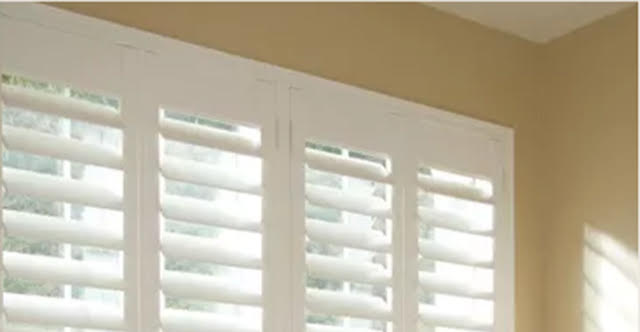
These shutters from Smith & Noble are made from a new nontoxic wood composite—they’re nontoxic and affordable.
I’m very excited to write this post today because it is the first post that contains links to my new Zero Toxics Knowledge Base. These links give you more information about the material, so I can link to that materials information again and again from different posts. Eventually you will begin to become familiar with materials as you read. Be sure to click through as you read.
One of the reasons why I love to do what I do is because my readers come to me all the time with products I don’t know about and ask me if they are toxic-free.
Often I point out toxic materials and reject the product, but yesterday one of my ongoing consulting clients (who doesn’t buy anything without running it by me first), brought some window shutters to me to check out. At first they looked suspicious, but they turned out to me wonderful, and opened the door to a whole new world of possibilities for affordable toxic-free products.
The description on the Smith & Noble website said “Eco Wood Shutters…These beautifully styled shutters are crafted to bring you all the beauty of wood alongside long lasting superior strength. Made from sustainable materials and featuring a tough poly coating that contains no VOC’s..Patented poly coating resists staining to ensure longevity in any environment.”
Eco wood..the beauty of wood…sustainable materials…sounds like wood but the description doesn’t actually say wood.
So I called customer service for my client and asked about it.
“Yes, It’s wood,” they said, “It’s a wood composite.”
“But this doesn’t make sense, “ I said. “Wood composites outgas toxic chemicals like formaldehyde. Why would they put a zero-VOC finish on a wood composite?”
“I’m pretty sure they made the composite with no toxic chemicals.”
“I need to know for sure what this composite is made of.”
“Well, I don’t know so you should just get our real wood shutters rather than the DuraWood.”
Ah ha! A brand name. I hung up from customer service and looked up DuraWood.
Yes yes yes!
Turns out that DuraWood is a wood and plastic composite that has the look, smell and feel of wood but has the durability of plastic. The great part is the plastic is polyethylene , which is one of the least toxic materials on the planet.
The finish is zero VOCs because it’s not a finish at all. It’s “poly” (polyethylene).
You can go online and type in “durawood” and you will find all kinds of products made with this materials.
I haven’t yet seen a sample of this material, but on paper it checks out as toxic-free.
Smith & Noble also sells Durawood blinds , which would be another affordable choice.
COMMENTARY ON PRODUCT DESCRIPTION
This is yet another example of businesses giving insufficient information on the health aspects of the product.
The material is actually nontoxic, but they don’t tell us that. I had to call customer service and even they didn’t know what to say to me. I had to research the material myself.
It would have been so much better if they would give full disclosure, tell us about the materials, and show us it’s OK for us to use.
Shopping for Pumpkin Pie + 6 of my favorite ways to celebrate pumpkin
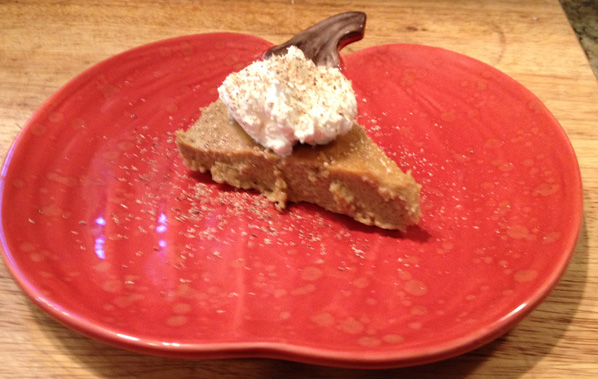
Last night Larry and I went shopping for a pumpkin pie.
Usually I make something pumpkin, but this year I’m so immersed in working on my new website that it was enough to make the organic turkey and and gluten-free cornbread stuffing and yams and cranberry sauce sweetened with local apples and green bean casserole. So I thought we could just buy a pumpkin pie this year. And I’m living with Larry’s family at the moment, so want to make a Thanksgiving dinner that will be familiar to them.
So we went to Whole Foods because I thought they might have house-baked pumpkin pies, but they didn’t. They had two brands of packaged pies. One was not even organic and had a lot of additives that don’t belong in pumpkin pie. The other was gluten-free and vegan and the second ingredient was tofu, so that was not an option for me because I don’t eat soy. Plus it was $20 for a smaller-than-usual pie.
We actually ended up purchasing a huge pie made with organic pumpkin from Costco, which seems to carry more and more organic food every day. Eleven-inch pie for only $7.99. And none of the additives found in the Whole Foods pie.
Times are changing. Whole Foods is no longer Whole Foods. Their basic operating principles are gone.
Next year I’ll go back to baking my own, but it was interesting to see what is going on in the world of pumpkin pie.
Here are some recipes I’ve shared in the past for pumpkin. I highly recommend the Pumpkin Pie for Everyone if you want something close to the standard pie, but try some of the others too. All yummy.

Pumpkin Pie for Everyone
The ingredients are so simple, practically everyone can eat it. There’s no crust (though you could add one if you want) so there are no grains, and there is no sweetener of any kind (though it tastes remarkably sweet!). And it’s so delicious you won’t miss the usually-soggy crust or the sugar. It’s my favorite pumpkin pie ever! RECIPE >>>
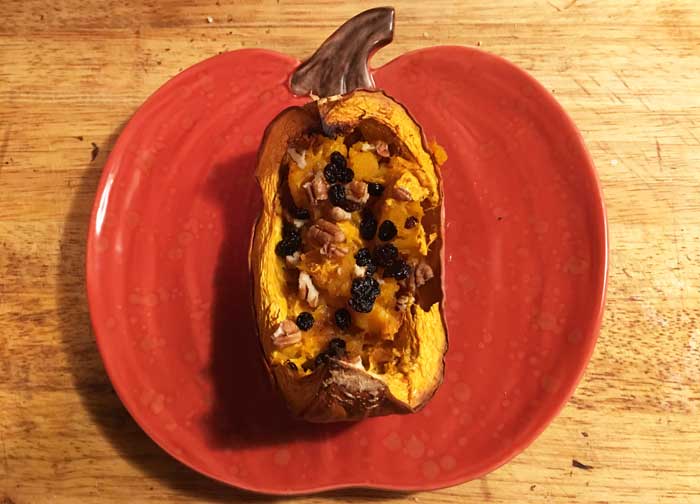
Twice Baked Pumpkin
You probably know twice baked potatoes…I roasted the pumpkin, fluffed up the roasted pumpkin with a fork in its shell, added butter and molasses, and some toppings, and baked it again. The result was “awesome”, according to my taste testers. Both preferred this to pumpkin pie and so did I. You get to see the pumpkin in its natural shell and natural state, not pureed, but as nature made it. A wonderful celebration! RECIPE >>>
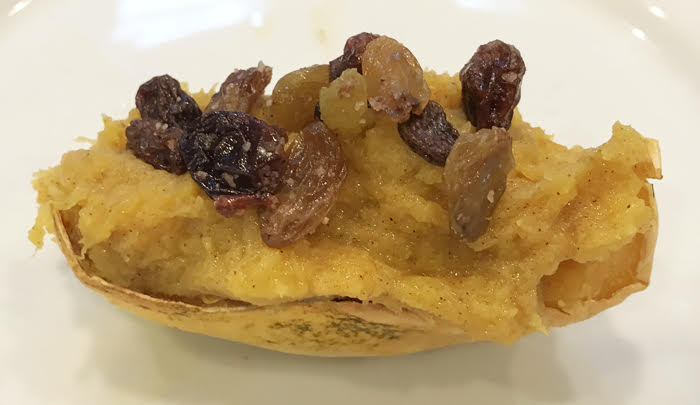
Twiced-Baked ”Pumpkin Pie”
This tastes like pumpkin pie but is made with a very sweet little squash called “Sweet Dumpling.” If you can find this squash where you live, it’s the best squash. It’s very smooth and creamy and SWEET. So no added sweetener of any kind is needed. RECIPE >>>
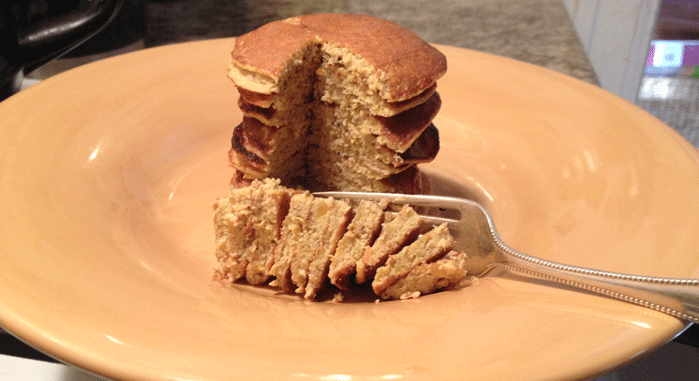
Amazing Pumpkin Pancakes
If you’ve roasted a pumpkin for pie and have some pumpkin puree left over, make these pancakes for breakfast. It’s a real pancake made only with pumpkin, eggs and spices, but it has the texture of a pancake and tastes like a pancake. RECIPE >>>
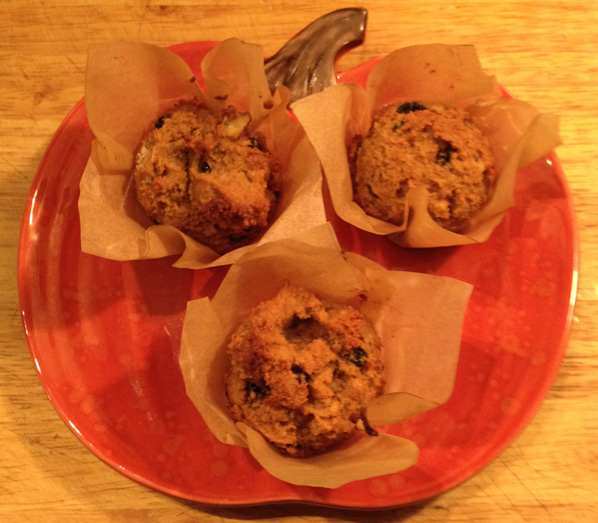
Pumpkin Muffins
These low-carb, gluten-free muffins are moist, delicious, and easy to make. Almond flour instead of wheat flour gives them extra protein. RECIPE >>>
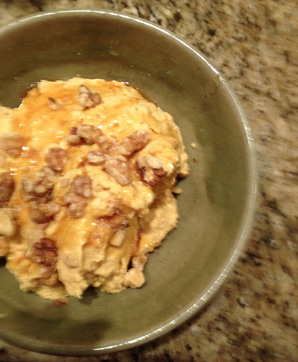
Pumpkin Hummus
Had some roasted carnival squash and cooked garbanzo beans, and thought I would try the two together. Delicious! Autumn in a bowl. RECIPE >>>
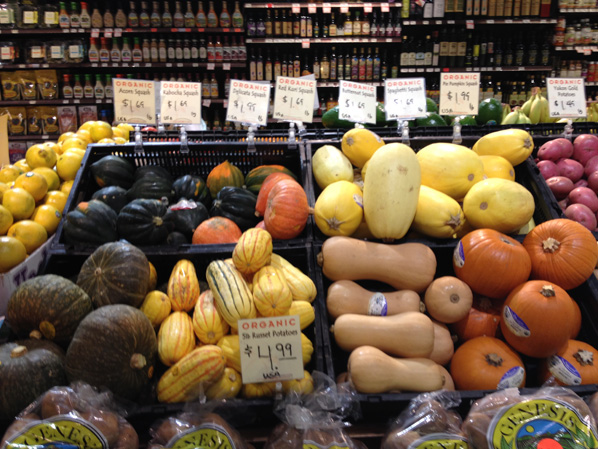
How to Roast A Pumpkin . . . And Other Winter Squashes
Please use real roasted pumpkin in these recipes—not canned pumpkin. It’s easy to roast a pumpkin or any winter squash! RECIPE >>>
Oxford Dictionary Word of the Year is…TOXIC

Well! The world is catching up with me. After forty years of talking about things toxic…the Oxford English Dictionary chose “toxic” as the Word of the Year!
The Oxford Word of the Year is a word or expression that is judged to reflect the ethos, mood, or preoccupations of the passing year, and have lasting potential as a term of cultural significance.
There was a 45% rise in the number of times the word was looked up on the Oxford Dictionary website.
Read more about the word and how the idea of “toxic” is permeating our world here:


